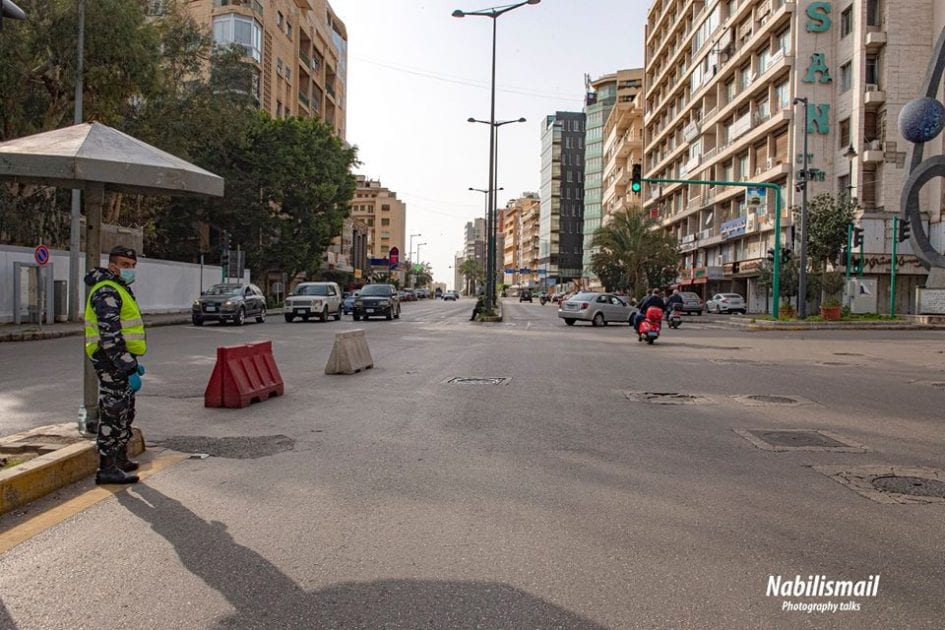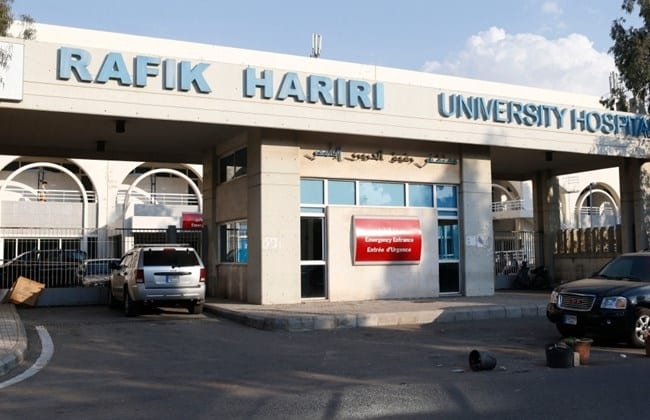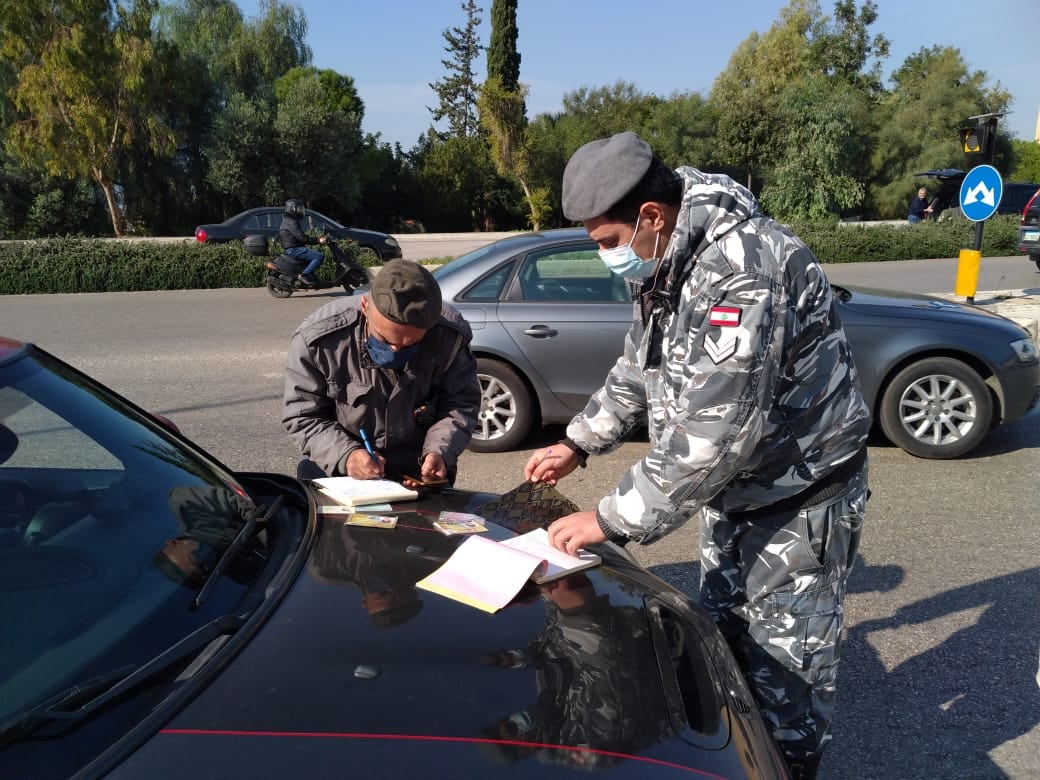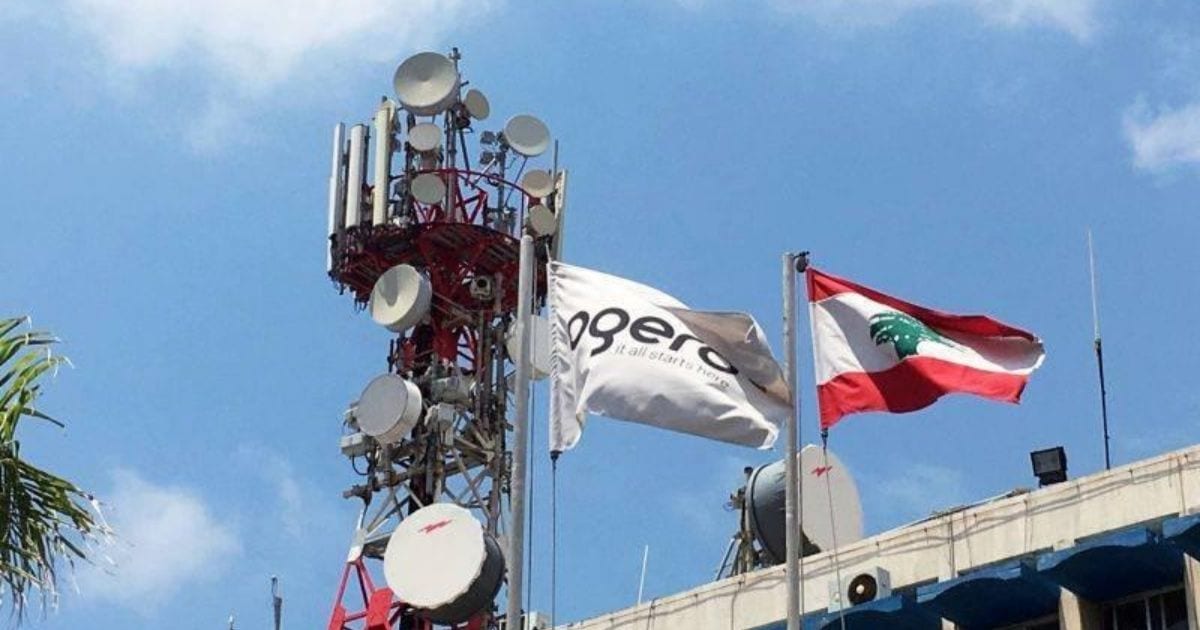Facing the failure of the lockdown that started in Lebanon last week to curb the dangerous rapid increase in daily coronavirus (COVID-19) case numbers so far, the Higher Defense Council has declared a state of emergency that will last 11 days.
The New Measures

The new lockdown measures are more comprehensive than last week’s. They will be implemented starting Thursday, January 14th. It will remain in effect until Monday, January 25th, subject to extension, and include the closure of most sectors in Lebanon.
Transportation aboard private and public cars is prohibited throughout the specified period, with the exception of those headed to the airport (having a ticket is required) or to medical institutions (showing proof of employment at the institution is required).
The Higher Defense Council decided not to close the Beirut-Rafik Hariri International Airport, but it will be mandatory for arrivals to Lebanon to stay at a hotel for a full week.

However, the airport’s traffic will be reduced to 20% of the numbers of inbound passengers recorded in January 2020, provided that arrivals undergo immediate examination for COVID-19.
On the other hand, the Higher Defense Council decided that the passage of travelers through land and sea border crossings will be prohibited throughout the aforementioned period, with the exception of transit passengers carrying tickets bearing the date of transit.
The Council requested that the concerned ministers take additional measures to force private hospitals to allocate intensive-care-unit beds for the treatment of COVID-19 patients.

It also requested that security forces and judicial authorities increase their strictness in enforcing the laws that penalize hospitals that refuse to take in emergency COVID-19 cases, as well as in enforcing the lockdown measures on the public.
All departments, public institutions, independent businesses, universities, public and private schools, nurseries, public parks, docks (corniches), public and private sports fields – both internal and external – in addition to the Casino du Liban, will be closed.
Additionally, it will be forbidden to hold public and private parties, social events, and gatherings of all kinds.

Notable Exceptions
- The technical teams of the Ministry of Public Works and Transport and those in charge of maintaining roads, opening waterways, and removing snow, as long as the ministry issues the necessary license for this purpose.
- The main institutions of the Defense Ministry and the Interior Ministry.
- The General Directorate of State Security.
- Lebanese Red Cross.
- Civil Defense and fire brigades.

- The Health Ministry and its field and volunteer teams, hospitals, government clinics, social care centers, and everything related to the health sector.
- The General Directorate of Social Security, the General Directorate of the Cooperative of Government Employees, guarantor mutual funds, insurance companies, health observers, auditors, the TPA, in relation to hospital, health, and pharmaceutical and laboratory approvals.
- The administrations of all sea and land ports.

- Electricite du Liban and all other institutions and companies responsible for securing and distributing electric current in all Lebanese regions, with everything related to production, supply, distribution, and emergency maintenance.
- The General Directorate of Oil at the Energy Ministry and the management of oil facilities, with everything related to securing, storing, and distributing fuels, including fuel stations, companies, and institutions that handle the import, storage, and distribution of gas.
- The General Directorate of Water and Electrical Resources, Water Institutions, the National Authority of the Litani River, and the General Directorate of Investment, with what is related to securing, storing, and distributing water, and companies and private institutions that undertake the mobilization and distribution of water.

- The Telecommunications Ministry, Ogero, and everything related to the telecommunications sector in terms of ensuring the continuity of the Internet, in addition to the fixed and cellular telephone networks.
- The central bank with the minimum operation limit, as determined by its governor.
- Judges and lawyers in relation to securing remote trials to decide on requests for the release of detainees as well as to consider urgent cases and matters.
- The heads and members of the diplomatic corps and the International Red Cross.
- UN personnel to the extent that would conduct emergency matters according to a decision issued by the UN Special Coordinator.
- Clerics assigned to tasks at social centers provided that they possess a card of this capacity issued by the competent religious authorities and whose use is exclusive to the period of closure.

The decision comes as Lebanon enters what caretaker Prime Minister Hassan Diab called “a stage of extreme danger,” earlier on Monday, stressing that the government has a duty to protect the Lebanese from themselves, citing the “recklessness” shown by many citizens.
We have a dedicated coronavirus section where you can find the latest news/updates about the pandemic in Lebanon, inform yourself with WHO-verified resources, and track the number of cases in Lebanon in real-time. Click here.

















